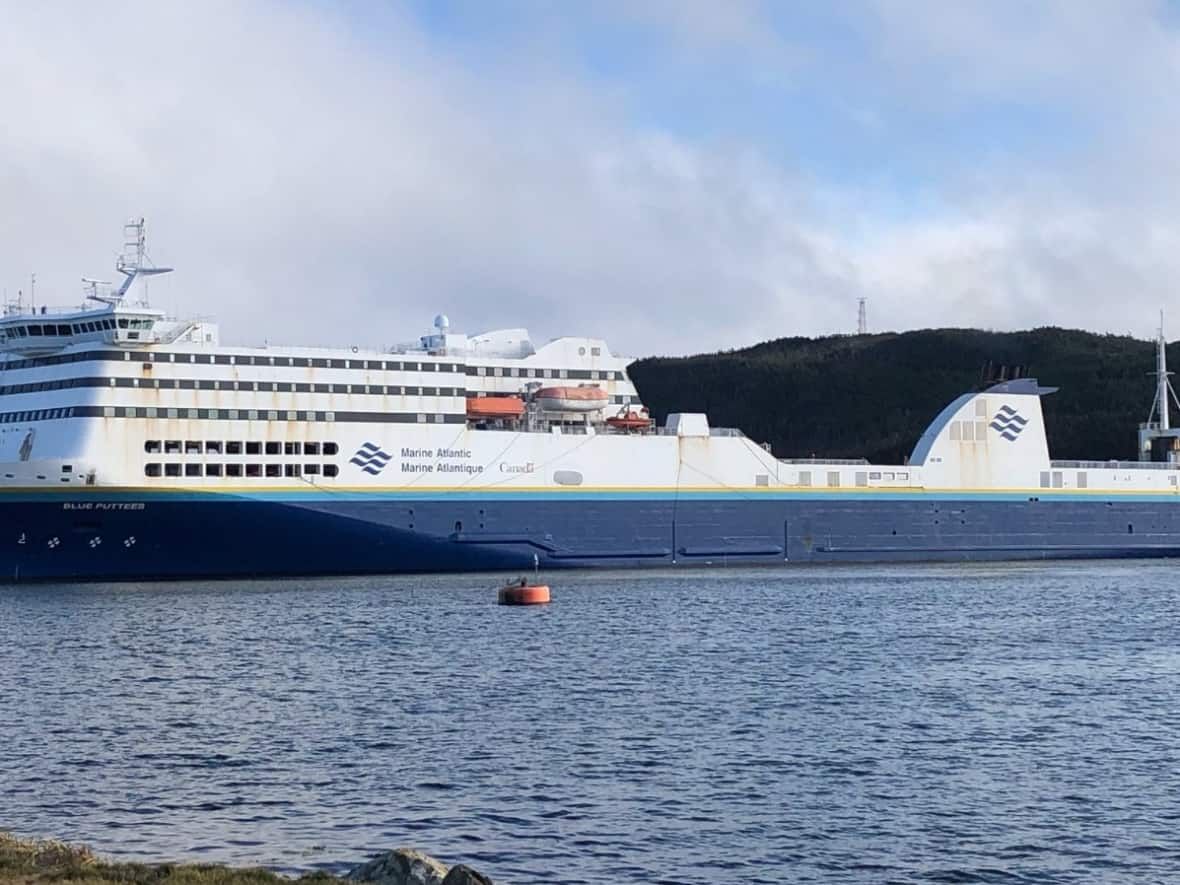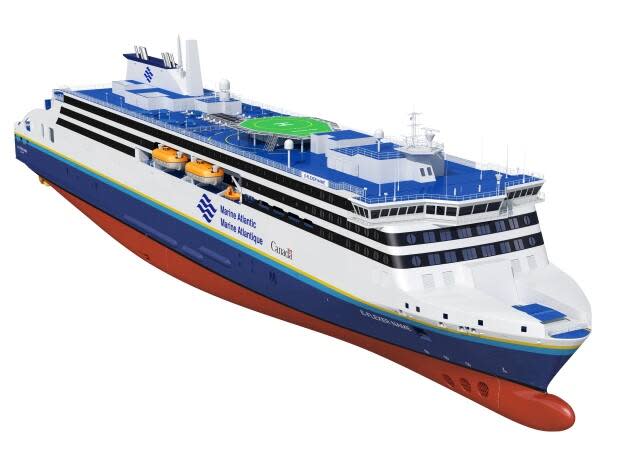Come Home Year helped Marine Atlantic surpass pre-pandemic traffic, says CEO

Passenger traffic on the Marine Atlantic ferry service surged this summer to numbers surpassing those recorded before the arrival of the COVID-19 pandemic, says the federal Crown corporation's CEO.
"Is it the new normal? We're not certain. But it definitely was a rebound from the previous two years," Murray Hupman told CBC News on Thursday.
Just under 160,000 passengers used the ferry service in July and August, nearly 20,000 more than the corporation recorded during the same period in 2019.
That's also more passengers than the service carried during the entire 12 months of the 2020-21 fiscal year, when the pandemic was at its height and Marine Atlantic was forced to reduce passenger numbers on its vessels, close shipboard food and retail services, and suspend the seasonal service into Argentia.
"We saw a great return to previous numbers," Hupman said.

The increase in business is being linked to an overall relaxation of public health restrictions, a pent-up demand for travel, and a yearlong Come Home Year celebration promoted by the Newfoundland and Labrador government.
Commercial traffic, meanwhile, was steady, said Hupman.
The increase in traffic was one of the highlights as Marine Atlantic released its 2021-22 annual report for the fiscal year that ended March 31.
The report shows that revenue and traffic increased, but so did expenses, as the price of fuel soared and a return to full service meant an increase in the number of employees.
Shawn Leamon, the vice-president of finance, said revenue for the year was roughly $105 million, an increase of $13 million over the previous year. To balance the books, the federal government subsidized the operation to the tune of $131 million.
Marine Atlantic is mandated to cover 65 per cent of its operating costs through user fees, but the cost recovery rate for last year was 60 per cent.
Struggling to find workers
Marine Atlantic operates four ice-class vessels: MV Blue Puttees, MV Highlanders, MV Atlantic Vision and MV Leif Ericson.
The corporation is constitutionally mandated to provide a year-round 96-nautical mile daily freight and passenger service between Port aux Basques, N.L., and North Sydney, N.S., which forms a vital connection between Newfoundland and the rest of Canada. It also operates a seasonal 280-nautical mile ferry service between Argentia and North Sydney.
Hupman said one of the biggest challenges faced by the corporation is maintaining its workforce of roughly 1,300 full- and part-time employees. He said many workers either retired or left the corporation during the pandemic.
"We're still trying to fill those voids."
Meanwhile, the first steel for a new ferry was cut at a shipyard in China in the spring, and the process of laying the keel is scheduled to begin next month.

A contract is scheduled to be awarded in the coming weeks for a new administrative building in Port aux Basques, and the corporation hopes to get approval in the next few years to remove Vardy's Island in Port aux Basques harbour to allow improved navigation and the use of larger ships.
But don't expect the construction of a new building in Port aux Basques to revive the long-running debate over the location of the corporation's headquarters.
"The headquarters for Marine Atlantic are clearly defined in St. John's," said Hupman.
Ship to be constructed in China
Marine Atlantic awarded a $100-million, five-year charter contract for a new vessel last year to Stena North Sea Ltd. The Swedish firm subcontracted construction of the 200-metre vessel to Jinling shipyard in China, with delivery expected in 2024.
The decision to build the ship in China raised concerns with Canada's shipbuilding association and came at a time when relations between Canada and China were rocky.
Hupman says Marine Atlantic went to the international marketplace for a ship that met all its specifications, and Stena was selected.
"It was up to the operator and owner of that vessel to decide where they were going to build it. We are just on the other end, leasing the vessel," he explained.
At the end of the charter period, Marine Atlantic will have the option of buying the ship.
"It's all about reliability and availability … and that new vessel is going to help us deliver on that promise to the island." said Hupman.
The vessel will carry up to 1,000 passengers and have 146 passenger cabins and 40 passenger pods.
The MV Blue Puttees and MV Highlanders will remain in service after the new vessels arrives, but Hupman said a decision will be made in the coming months on the fate of the MV Atlantic Vision and MV Leif Ericson.


